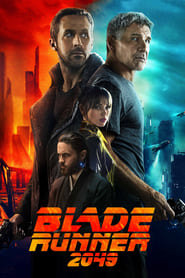Asks the now-obvious follow-up question: "Okay, so what does the electric sheep dream of, then?
I will assume that if "of woman born" is an allusion to Macbeth, "cells interlinked" is to Nabokov's Pale Fire, Rick Deckard is a close homophone of René Descartes, and the hunt for the orphan rhymes with the story in Exodus about the search for Moses, I will assume it's pretty safe to assume that K/Jo is a reference to Josef K in Kafka's The Trial.
Anyway, a VR girlfriend might make you happy, but it won't make you contented.
Blade Runner 2049’s racial text is oft-plumbed by the horror and sci-fi genres [and] Villeneuve’s film is designed to reward the audience for recognizing the references in the midst of an action pursuit, and, after an hour or so of the clipped and earnest signifying, one may find themselves nostalgic for Scott’s unforced indifference to the issue. Somewhat subtler and more promising is the film’s vision of a corporate world that preys on consumers with mechanized nostalgia. […] Blade Runner 2049 embodies the sterile sanitization that continues to grip modern American filmmaking. That’s the point in this sequel, but self-awareness is meager compensation for texture.
— Chuck Bowen (Slant Magazine)
[This] sequel slightly de-emphasises the first film’s intimate, downbeat noir qualities in favour of something more gigantic and monolithic, preserving Ridley Scott’s massively controlled andante tempo. […] The largely electronic musical score by Benjamin Wallfisch and Hans Zimmer provides a kind of aural neon: gaunt, harsh, angular, like the noise of machinery. It’s an incredible lucid dream. Weirdly, I had forgotten about one of the little-discussed pleasures of the big screen: the simple effect of dialogue, echoing in a movie theatre. This film’s scale is extraordinary. It places the acid tab of cinema-pleasure on your tongue.
— Peter Bradshaw (The Guardian)
The world of 2049 is the dispiriting wet dream of soulless capitalism. Art is porn; everything is available; nothing is real. Children are hoarded into orphanages to pick through circuit boards in a scene that feels like Dickens rewriting Neuromancer to include a Chinese iPad factory. […] If the first film hinged on the question of whether Deckard was really human, the new film posits the idea that Gosling’s replicant might be the post-human vehicle for an otherwise absent humanity.
— John Bleasdale (CineVue)
Synopsis: Thirty years after the events of the first film, a new blade runner, LAPD Officer K, unearths a long-buried secret that has the potential to plunge what's left of society into chaos. K's discovery leads him on a quest to find Rick Deckard, a former LAPD blade runner who has been missing for 30 years.

